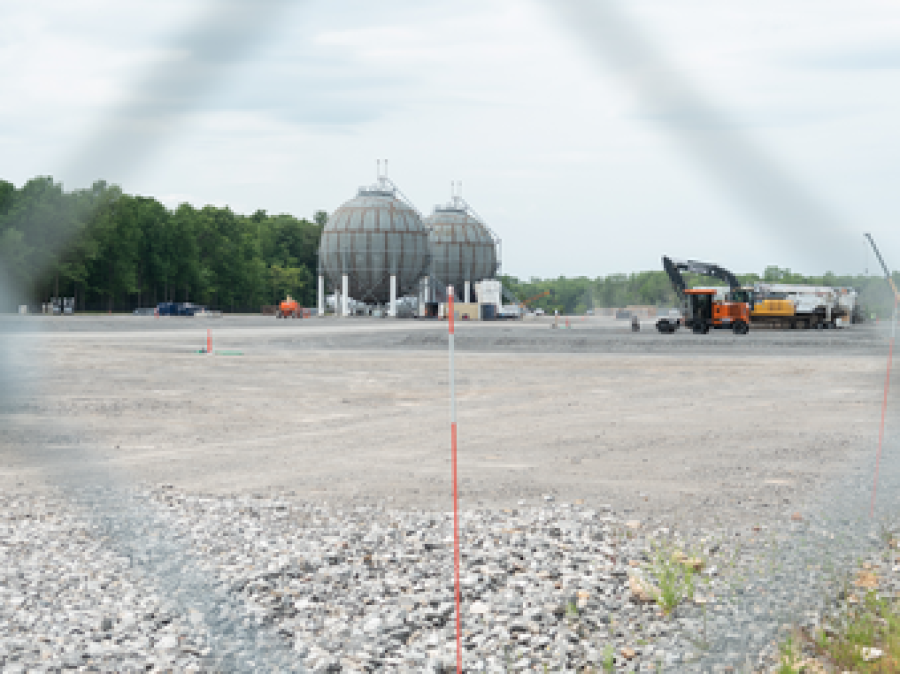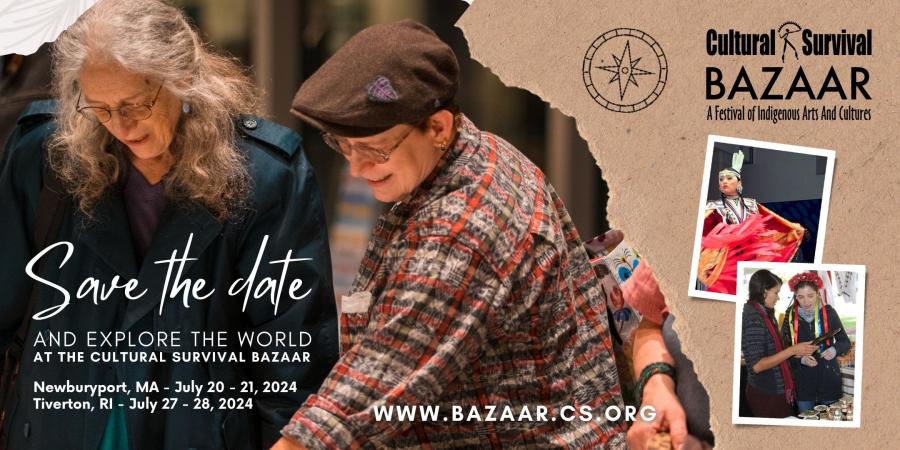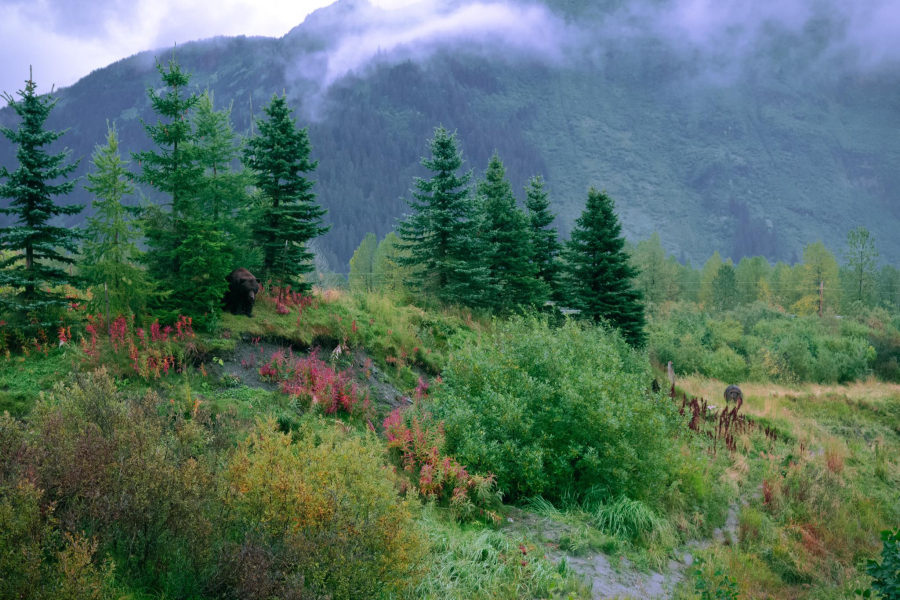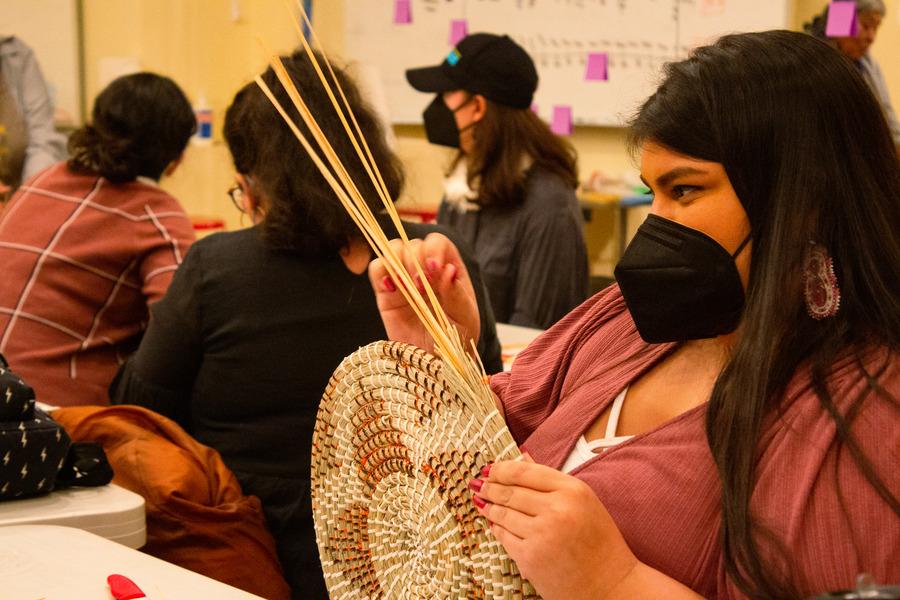
Tara Moses, a citizen of the Seminole Nation of Oklahoma and of Muscogee Creek descent, is an accomplished director and award-winning playwright. She is a co-founder of Groundwater Arts and #BINGE. Her extensive work across various theater companies includes commissions from Audible, Red Bull Theater, and the Oregon Shakespeare Festival, among others. Recent directing projects span notable venues such as Arena Stage in Washington, D.C., and American Indian Community House in New York. Her plays have been featured nationwide and integrated into curricula at multiple universities, including Brown University and UCLA, and she is actively involved in various theater organizations and fellowships in the performing arts community.
Moses is the director and playwright of “Haunted,” which is being produced by Company One Theatre in Boston and will run January 24-February 15 at the Boston Public Library. It is an "Indigenous horror comedy" that follows Ash and Aaron, siblings who have been dead for 20 years, as they haunt the house they've been tethered to and wait to enter the spirit world. The story amplifies the Land Back movement and prompts conversations about cultural myths, ancestry, and Indigenous sovereignty. Shaldon Ferris (Khoisan), Cultural Survival Indigenous Rights Radio Coordinator, recently spoke with Moses.
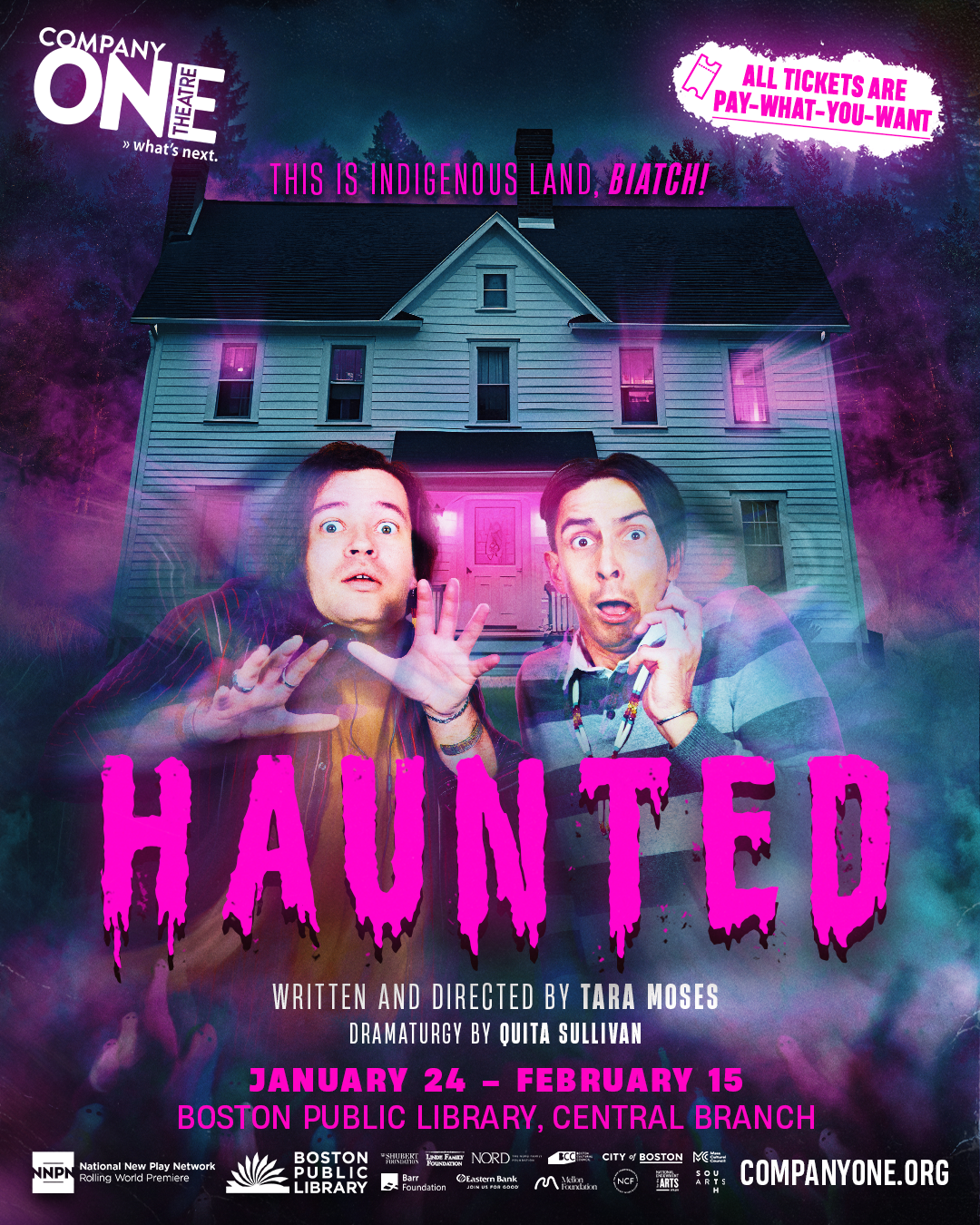
CS: Tell us about your journey that brought you to the theater.
Tara Moses: It was a complete accident. In elementary school, I had a very long walk home—over two miles from school every day. One day, when I was eight years old, I walked by a theater that was having auditions for the musical “Oliver!” I remember in my little eight-year-old brain, I was like, I'm a child. I can look sad. Why not? If I have to come here after school, then somebody will have to pick me up. I walked in and I was cast.
My family had just moved from the Seminole Nation reservation in Oklahoma to an urban city, and I was very much missing that sense of community. It was indeed a community feel being part of this company. I had never been to a play before; I never knew anything about theater. No one in my family was in the arts or anything like that. It was just an after-school-get-a-ride-home scheme. I stuck with it because it was the closest sense I had to feeling like I was within my community, until I went to undergrad for musical theater performance and directing.
Now I have the privilege of not just doing theater, but doing theater with predominantly Native people. Theater is the only medium where it is about being in real-bodied relationship between the people telling the story and the audience.
For me, what makes theater so special is design and having literal stage magic happen in real-time with a living, breathing group of people. There have been studies that have shown that an entire audience's heart rate synchronizes whenever they're watching theater in real time. It's just the most tangible, magical experience there is that you are in with other people. That community aspect of theater and the fact that it's very much rooted in my own traditional storytelling practices. Theater is, to me, the only other artistic way to tell stories that does it like this. I started as a performer. I'm what they call a textbook extrovert; I have no shame. It's never been a really scary thing for me. Instead, I think of it more as an opportunity to connect. I'm not doing things for just a camera and a crew of people, but we created this story for these folks, and now here they are. To me, there's something so special and exciting and extraordinary about that.
CS: “Haunted” has been described as "Indigenous horror comedy." What is the story behind the play?
TM: I have always wanted to write a satire horror play set on an Indian burial ground and in a haunted house. In “Haunted,” the Native spirits who haunt the house died in 2003. They love Britney Spears—not at all what we imagine Native spirits who haunt a house would be like. I've always wanted to write that play. Company One, who I’d worked with a few years before, reached out to me to write and direct in a festival they were doing. I just casually mentioned the idea to them and they commissioned it, which was so exciting because they don't commission very many playwrights. As I wrote the play, it very quickly turned into a play about Land Back.
One thing about me as a playwright is, activist/playwright, they're the same. It always turns into something. While I thought this would be a silly little 90-minute, no-intermission play with a scene where the Native spirits get an Ouija board and are having fun with the Quaker who gets conjured, very quickly it turned into a story about two Native siblings who are stuck in this house and don't know why they're not in the spirit world. We start in that “Conjuring”, “The Amityville Horror” style, a satirical haunted house play where the spirits are having a good time. Then, it quickly transitions into what I imagine a real-life horror play would be for the Native spirits. Why are they not in the spirit world? Because part of them is still physically tied to the land that the house is on. The solution is the land goes back, then they're able to actually go to the spirit world. It’s a conversation about how many of our ancestors are stuck in places like universities and museums because they have not been returned home.
CS: Why did you choose the Boston Public Library to stage the play?
TM: Company One has had a relationship with the Boston Public Library for five or six years. They love the library for many reasons, one being that it's so accessible, and Company One does accessible work. Every ticket is Pay-What-You-Want, which could be free. They are really focused on doing theater that sparks social change. This play teaches people about what the Land Back movement is, how they can be involved whether they rent or they own, why this is so important, what is rematriation, and the specific links between Black Liberation and Tribal Sovereignty and how closely aligned these two communities are.
This is all radical information. Hosting it someplace like a library that's also currently under attack for offering information and resources to people feels like a really great fit. The space is really interesting because it's obviously not a traditional theater. However, our set designer, who has worked in that space before, is able to truly transform and give folks who come to the library a completely different experience, along with giving folks who come to the theater but may not come to the library a connection to this space. I'm really excited because this play teaches people a lot of things that they don't know about, a lot of things certain politicians do not want people to know.
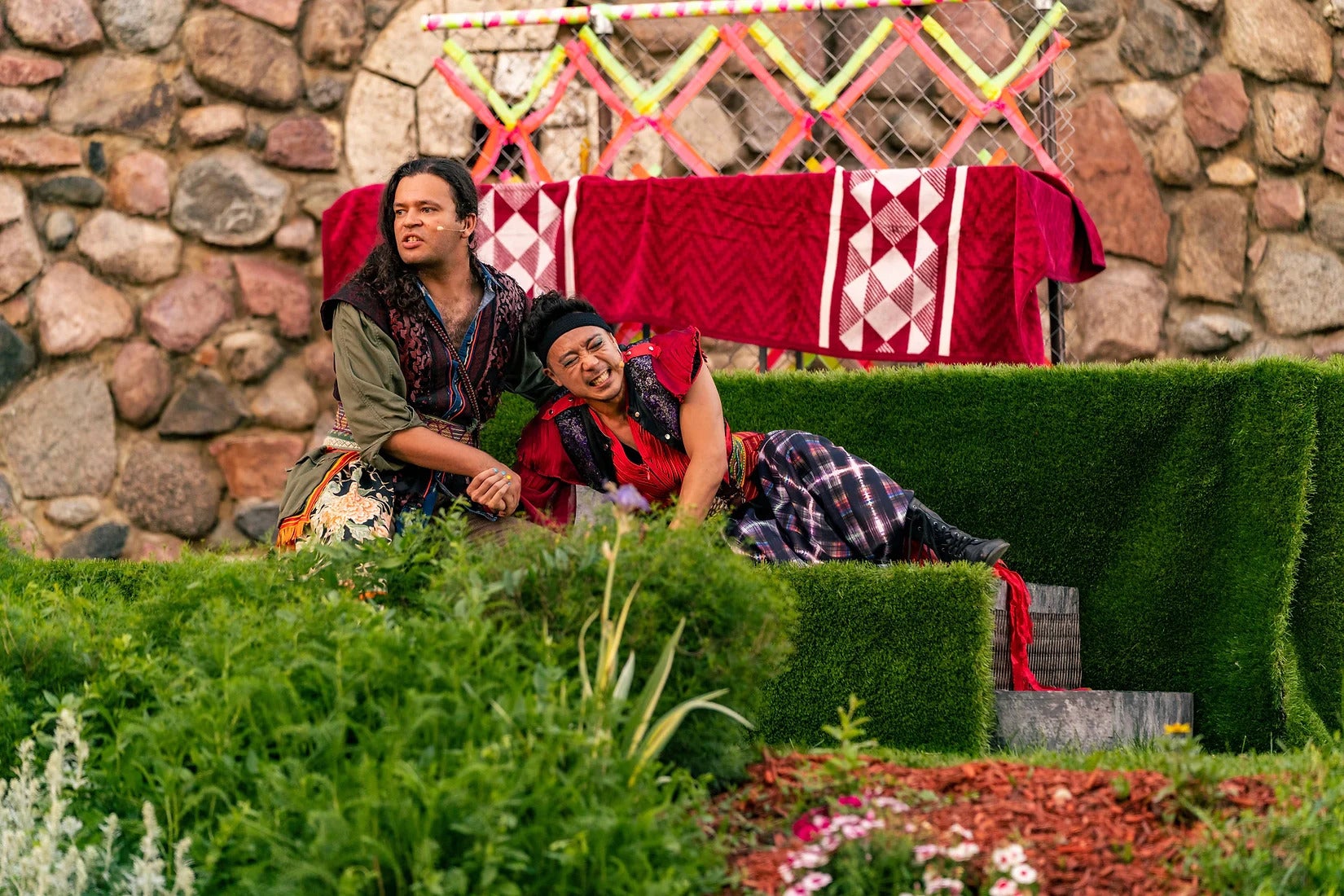
"Othello," adapted and directed by Tara Moses, South Dakota Shakespeare Festival, photography by Aaron C. Packard (featuring "Haunted" actor Chingwe Padraig Sullivan).
CS: Please tell us about Groundwater Arts, which you co-founded.
TM: We are an organization that braids together new ideas, living knowledge, and immediate strategies to bring the arts and culture field into the decolonized future faster. We work at the intersection of racial justice, climate justice, and decolonization. I'm very proud to be co-founder. We do a lot of work that's very similar to the work that “Haunted” and Company One are trying to do, which is bringing education to the people to give them hands-on experience with decolonized work with the overall goal to move our greater community into a more just future far, far faster. I deeply love and enjoy everything that I do. I'm so passionate about teaching and mentorship, especially because I'm the first Native person to have an MFA in directing. Using my work as a director to mentor and teach other Native folks especially, so that I am not the first and only, is really important to me.
CS: You are a writer, director, performer, and teacher. What role do you find most joy in?
What obstacles have you faced as a Native woman in the arts?
TM: I love writing so much. I write my plays like a director. It's pretty equal. Right now, we're in the midst of rehearsals for “Haunted,” and so I'm just ‘director Tara’ because the play is locked in. I'm having a great time just being a director. It just depends on the day. I went to undergrad for musical theater performance. This was at a time when the first Native play produced in a major regional theater hadn't happened yet. Native theater has been happening with Spiderwoman Theater, based in New York City. They've been doing dynamic Native work since the 1970s. However, for me, it was not accessible. People didn't know about it. I was the only Native theater person that I knew. I was the first Native student my program ever had. I was the first Native working in theater that my professors even knew. It was a very isolating experience.
One thing about musical theater, it is a beast. It has a lot of problems. They were like, We don't know where to put you. You look like a Puerto Rican, so maybe? But I was like, I'm not, and I'm not going to appropriate another group. I'm not going to pretend to be Latina to play these roles. They're like, then there's no roles for you. I was cast predominantly as the maid or the whore. There weren’t opportunities for me. My professors have even told me so. They were like, Maybe you should also get some other skills because we don't know where you're going to fit in in overall musical theater.
I studied stage management and design and directing. I wanted to take playwriting. However, the head of the playwriting program at the time, a deeply racist white man, told me to my face that he did not think I had anything to add to the American canon. He wouldn't let me take his playwriting class. Here I am now, having never taken a formal playwriting class, ever. It's like I was being erased and silenced until there was an opportunity for me. I think that's why I moved into directing. In this position, I can create the opportunity for people. Then, years later, I accidentally wrote my first play. I can write the roles that I wanted to see.
What people are now calling a Native theater renaissance, we haven't ‘naissanced’ before, so how can we renaissance? We're living in a time where Native theater is kicking off for the first time. Theaters are producing their first-ever Native work. This is the first-ever Native work Company One is doing. I feel so privileged and fortunate to be at the forefront of this movement of writing these roles, directing these plays. It's just a massive 180 from when I was 18 years old. When I think about how much has happened in 15 years, I'm excited for what's going to continue.
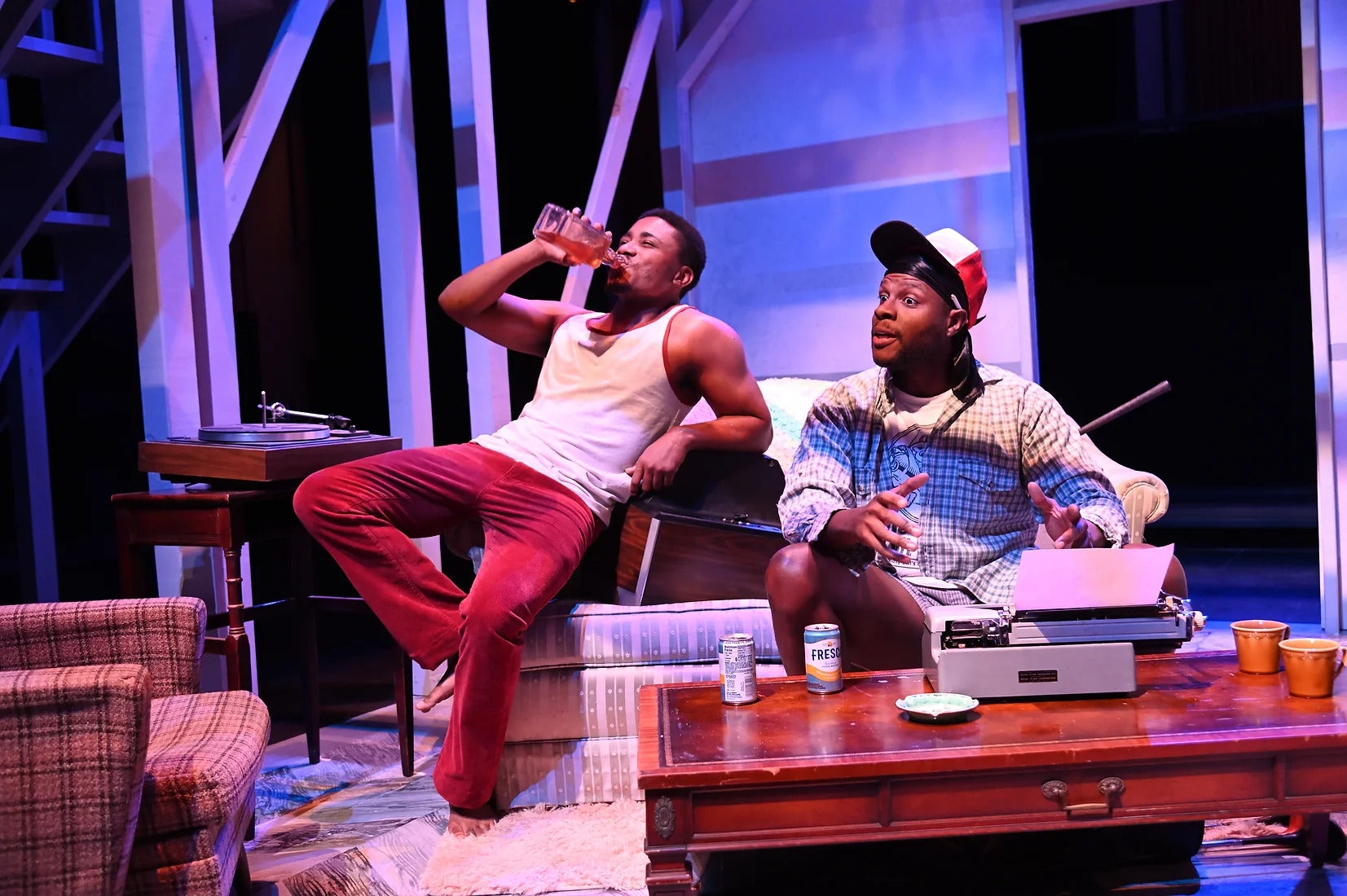
"True West" by Sam Shepard directed by Tara Moses, Brown/Trinity Rep, photography by Mark Turek (featuring "Haunted" actor JaQuan Malik Jones).
CS: What advice do you have for Indigenous youth interested in the performing arts?
TM: My advice is to reach out to established Native artists. I can't speak for all Native artists in the theater, but I can say with some authority that a lot of us would love to talk to you. If you need help navigating this thing, reach out. Because so many of our journeys have been hard. Many of us can help make it easier for the next generation. We can provide a helpful hand, mentorship, or share opportunities. People ask me all the time for other Native actors, Native writers, Native directors. If that's you or if you want to be that, let me know. For me, growing up, there were no Native theater artists I could reach out to. You don't have to do this alone. We're not meant to do this alone. We're very communal people. Lean into it.
CS: What is next for you?
TM: Spring 2025 is already booked and busy. The day after “Haunted” opens, I'll be going to Santa Fe to do the last workshop for a new play by a Native playwright, Dylan Chitto. After that workshop, I'll go back to Boston to direct “Where We Belong" by Mohegan playwright, Madeline Sayet, at Umbrella Arts. As soon as that show is open, I'll go down to Florida and do a residency at the Ringling in the Oslo Theater with Groundwater Arts. Then I'll come back to Boston for the first rehearsal of the world premiere of one of my plays, “Sugar,” with Fresh Ink, which is very exciting. Then I will go do “Sugar.” I think it'll be in rehearsal for a week. Then I'll go down to Georgia and I'll be directing the world premiere of a show called the “The Mvskoke Project,” which was written with a group of Muscogee Creek folks around our history and community on our ancestral lands, which is very exciting. After that show opens, I'll go back to Boston for the opening of “Sugar.” Then, typically, I work for the Yale Indigenous Performing Arts Program and direct in their Festival of New Plays, which I'll do in April.
In May, I'll be in Indiana working as a dramaturg with New Harmony, which is a playwright residency that I had the great fortune of doing last year. I'll be able to advise on some new Native plays while I'm there, which I love to see. After that, I'm back to Santa Fe to direct that Chitto production called “Pueblo Revolt.” Then after that, “Haunted” will be heading its second production, part of the Rolling World Premiere with National New Play Network at Native Voices in Los Angeles. I am so thrilled about that. Then after that, it'll be the final production of “Haunted,” the Rolling World Premiere at the Cleveland Public Theater in Cleveland, Ohio.
Folks who are interested in seeing “Haunted” in the Boston area can get more information and tickets at Company One's website, www.companyone.org. “Haunted” opens on January 25, but we have a preview on January 24, and it closes on February 15. It’s at the Boston Public Library, right in the heart of downtown Boston. All tickets are Pay-What-You-Want. The show runs for two hours with intermissions. It’s a great show, great time, great cast. See you there!
Top photo: Director Tara Moses during a rehearsal for "Cashed Out" by Claude Jackson Jr., San Francisco Playhouse, photography Juan Rebuffo.
